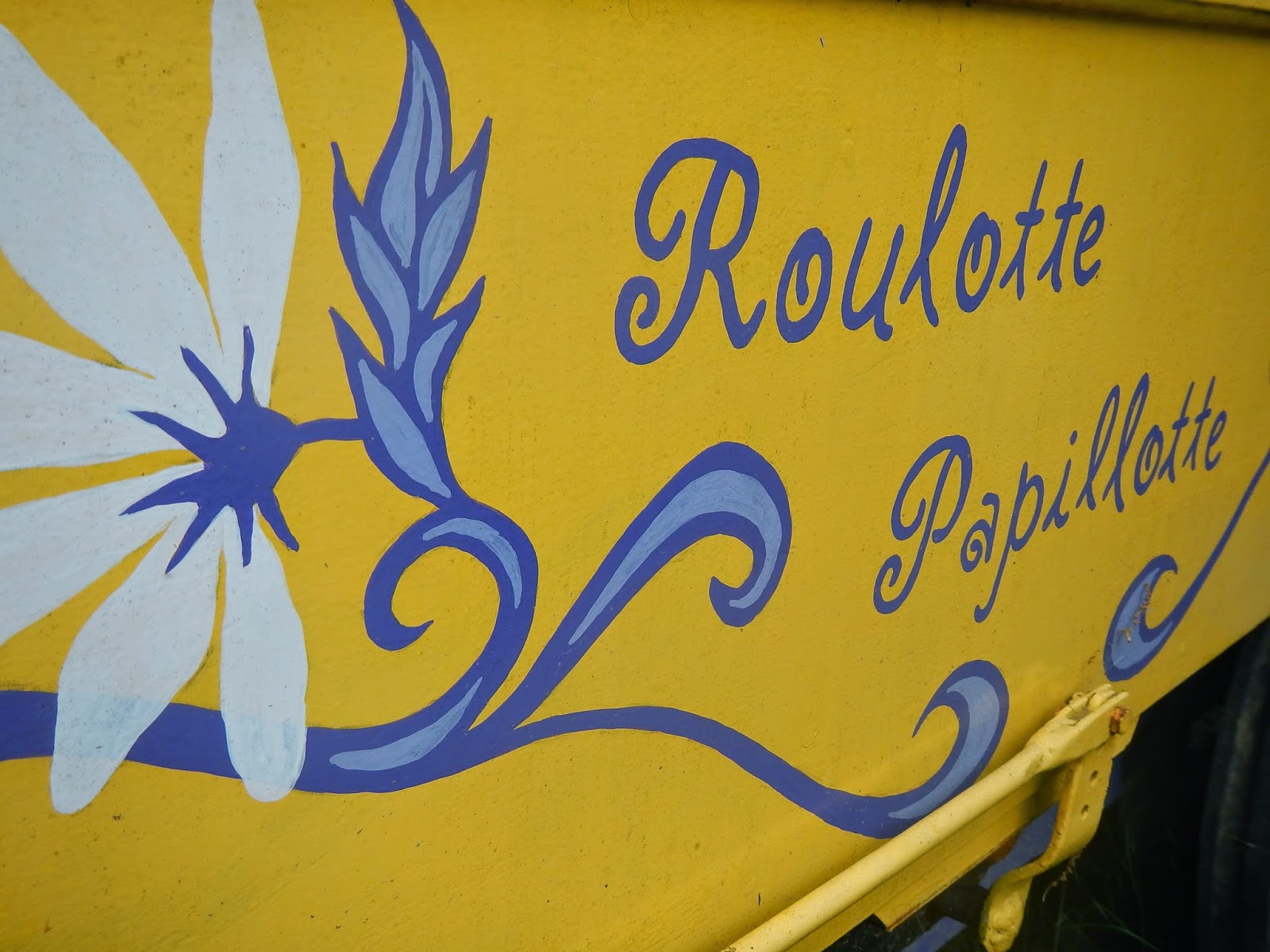Judith and Andre travelled before in a trailer like so many
others. But in 1996 a chance meeting would forever change their view of life.
One day a man who traveled a deliciously slow and ecological way: horse
carriage stopped next to their motor vehicle. That's when the couple decided
they were going to abandon civilization in some way to take that same path, and
in that way they began to prepare their great journey. They learned carpentry,
mechanics, techniques for taming draft horses (to make it clear to a hack that
you cannot move when the light is red, or when you are obliged to go through
the suspension bridge in Bilbao). Time did not wait and it took four years
before everything was ready. In Judith's lap both her eldest daughter of two
years and the small one of just two months sit. Neither recent fatherhood nor
having less than a hundred euros in their bank account would stop this Dutch
couple would stop this Dutch couple from heading towards freedom.
For fourteen years, André, Judith and the girls have
travelled around Holland, France, Spain and Portugal at an average speed of 15
km / day, two hours a day, to avoid tiring the horses. Pure art on wheels, the
carriage has been decorated and redecorated as the girls have grown, until,
finally they became too old and adolescent to leave the bunk they shared with
their parents and claim their own carriage. This time, built with their own
hands.
The trailer family from Papillote are resourceful people.
For a long time they lived off of what Judith earned in village festivals
with her make-up for children. Meanwhile, Andre´s official profession is
photography, with which they often had enough to eat. For horses was it was all
very easy, as they helped themselves to the grass they encountered along
the way. A tough and simple life, no frills. Life was altered only
occasionally by the Civil Guard while traveling in Spain. Problems that ended
when they said, two or three times each day, they were Dutch people doing St.
James´Way.
Now, fourteen years after their departure, Andre and
Judith have built a large carriage that cannot be pulled by horses. Their life
is made stationary by the desire not to close any future doors for the girls.
Although both have received an excellent education from Judith, speak several
languages and are very mature, they wanted to go to school to formalize their
studies. Knowing their particular situation, they sought an education,
but none responded to what they expected. Finally they agreed to enroll the
girls in a normal school. On the day of the interview with the director of the
center, without the mother noticing, one of the girls took a pen and
decorated her entire arm with drawings. When you first step into
the "civilized world", one realized that on this side of the door,
art and nature are not free. Despite the drawing, the girls were accepted at
the center. When the director told her that henceforth she could not do that
sort of thing at her school, she asked him why. The question, which the
director took it as a sure sign of rebellion (typical of someone who has grown
up in such circumstances) was actually a sign of wonder and curiosity behind
the reason for the castration of art.
Their life has certainly changed. They will have to return to
a sedentary life, at least during the years that girls are at school.
Currently, a neighbor of Marciac has given them a piece of land where they can
live with their carriages surrounded by nature. But do not know how long
they will be there. Thanks to them we can enjoy a day with them and
pleasant conversation.
Judith prepares some soup, with a smile framed by fiery
hair:


















